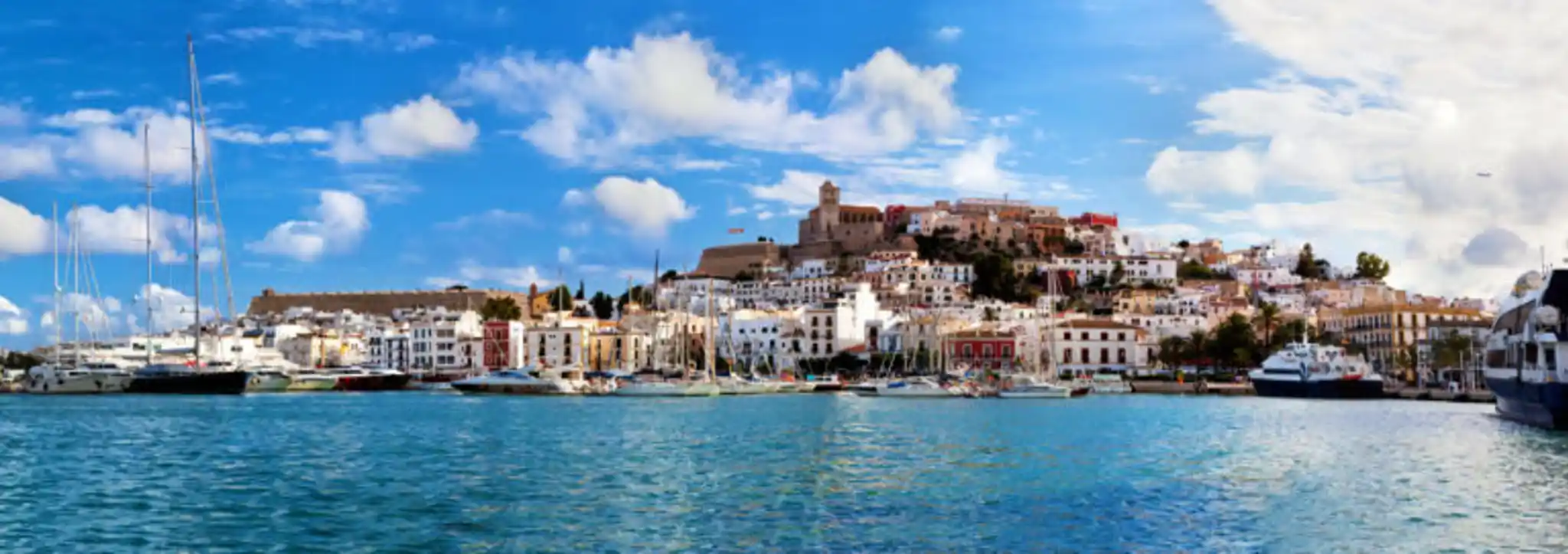Unveiling the Bohemian Tapestry: Exploring Ibiza Town's Rich History
Take a walk around Ibiza Town today, and you will find it bustling and thriving, cosmopolitan and quirky, full of history and crackling with colour and energy. Ibossim, Ebusus, Yehbisa, Eivissa, Ibiza!
Through the ages, it has obviously not always been the place it is today. It has a long and rich history interwoven into its people and its architecture.
A Journey Through Time: The Evolution of Ibiza Town
The story of Ibiza Town is captivating and rich with various civilizations that have called this land their home.
Ibiza town (and of course the island!) was discovered by the Carthaginians in 654 BC, making it one of the earliest towns in Europe. They named it Ibossim. Curiously, this means 'City of Bes.' Bes was the Egyptian God of music and dance. Perhaps they were onto something there! The town was renamed Ebusus in 123 BC by the conquering Romans. Evidence of this era can still be witnessed as the statues of Roman guards stand sentinel at the gates to the entrance of Ibiza's old town.
The fall of the Roman Empire in the 5th century saw the town fall into neglect. Indeed, it was conquered by the Vandals and the Byzantines in the years leading up to the 9th century when the Arabs arrived. They called it Yehbisa.
Relics of Arab rule, like the fortified walls and watchtowers, remain. Although their influence is perhaps best depicted in the island dialect 'Ibicenco' and the style of dress still worn by Ibicencan traditionalists today.
In 1235, the Catalans arrived, bringing Christianity with them. They replaced the mosques with churches and built the stunning cathedral in Dalt Vila. They also gave the town its current Catalan name, Eivissa.
The walls surrounding Dalt Vila are the result of fortification from the Italian architect Calvi in the 16th century. They were built to defend the town against the more frequent and brutal pirate attacks that plagued the area. These walls and the town enclosed within were named a UNESCO World Heritage site in 1999, showcasing the deep historical layers of the town. With each change of rule, culture, and religion, the new phase has not erased the previous; it has instead woven it into the present. Embracing the Spirit of Ibiza Today
A prevailing sentiment about Ibiza Town today is one of freedom, enterprise, and relaxation. As liberalists sought refuge from Franco's mainland Spain on the island in the late 1950s, Ibiza Town became a haven for writers, poets, artists, and musicians. This marked the birth of the town as it's known today, with nightclubs sprouting in the mid-60s on the back of hippy culture. As you wander through the vibrant streets, you're not just surrounded by the latest trends and modern amenities; you're walking through layers of history that have shaped this eclectic and captivating town. From the echo of ancient civilizations to the whispers of hippy counterculture, Ibiza Town stands as a testament to the enduring spirit of its people and the ebb and flow of time.
Discover the Magic of Ibiza with Ibiza Summer Villas
When you choose to explore Ibiza's enchanting history and vibrant culture, Ibiza Summer Villas becomes your ultimate guide. Our carefully selected luxury villas provide the perfect base for your historical journey.
Whether you're captivated by the bustling Las Dalias Market, the coastal allure of Punta Arabí, or the intimate charm of Cala Llenya, we offer insider insights and guidance to help you make the most of your stay.Contact Ibiza Summer Villas to embark on a captivating journey through Ibiza's history. Let us help you discover the rich layers of Ibiza Town's past, present, and future. Your immersive Ibiza experience awaits – a blend of enchantment and cultural exploration that only Ibiza Summer Villas can provide.
